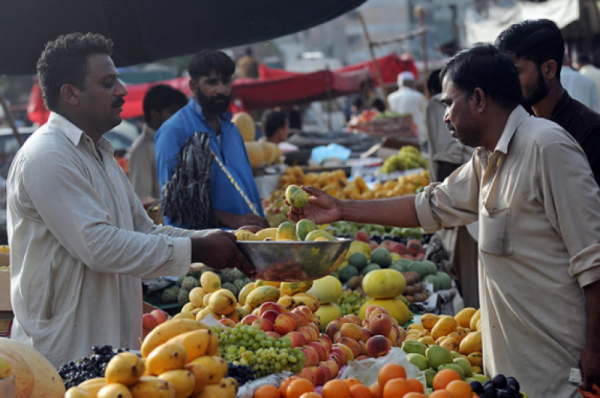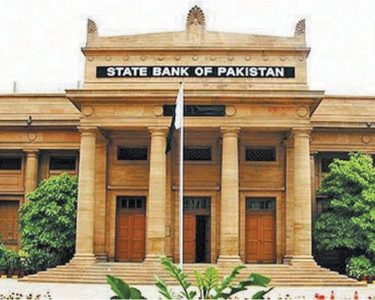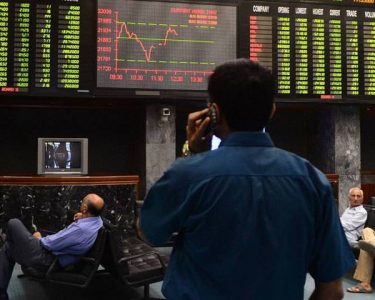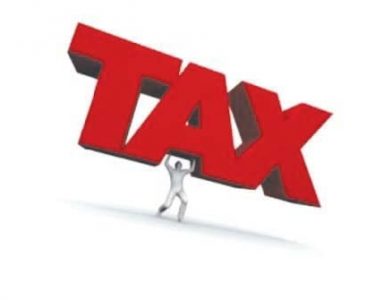ISLAMABAD:
Pakistan’s inflation rate fell to a nearly decade-low level of 2.4% in January, bringing the central bank under pressure to further reduce interest rates to single digits by abandoning its extra-cautious monetary policy.
Although the pace of increase in prices was at one of the lowest levels since November 2015, the Economic Coordination Committee (ECC) of the Cabinet on Monday “expressed concerns over the rising prices of sugar, vegetables, and edible oil.” The Pakistan Bureau of Statistics (PBS) reported on Monday that inflation, measured by the Consumer Price Index (CPI), eased to 2.4% in January compared to the same month last year.
The slow pace aligns with the expectations of the federal government and independent analysts. It was the lowest increase in prices since November 2015, when the reading was 2.7%. With the fresh inflation rate, the gap between headline inflation and the key policy rate of the State Bank of Pakistan (SBP) has widened to 9.6%. The central bank last week reduced interest rates to 12%a total cut of 10% since the start of this fiscal year. However, the cost of borrowing remains far higher than prevailing inflation rates, indicating the central bank’s cautious monetary policy.
The government and the central bank face a dilemma as they cannot allow the economy to grow at a faster pace due to prevailing underlying economic fault lines. SBP Governor Jameel Ahmad said last month that the cut in interest rates would save Rs1.3 trillion in debt servicing costs, bringing it down to Rs8.5 trillion for the current fiscal year.
Businesses require stimulus in the form of reductions in energy costs, working expenses, and policy consistency. Until the interest rate drops to single digits and stable policies and politics are ensured, businesses may not expand their operations. For the current fiscal year, the government has set the inflation target at 12%, while the International Monetary Fund (IMF) projects an inflation rate of 9.5%.
Average inflation during the first seven months (July-December) of the current fiscal year slowed to 6.5%, nearly half the annual target.
The central bank governor said last month that the medium-term target of bringing down inflation to the range of 5% to 7% had already been achieved. However, he cautioned that the pace might pick up again from March and peak in September due to the erosion of the positive base effect.
Core inflation, calculated after excluding energy and food items, also declined, lowering to 7.8% in cities and 10.4% in rural areas. Average core inflation is almost 3% lower than the policy rate, providing room for the central bank to cut rates further.As per IMF policy, the government changed the benchmark from core inflation to headline inflation for setting borrowing costs about four years ago.
Urban inflation slowed to 2.4% due to a slower pace of increase in both energy and food prices. In rural areas, inflation decelerated to 1.9%, according to the national data collecting agency. The impact was more pronounced in towns and villages due to declining food inflation.
PBS reports inflation data from 35 cities and covers 356 consumer items. In rural areas, it covers 27 centres and 244 consumer items.
PBS data showed deflation in food prices, which contracted to less than 1% in cities and around 3% in rural areas. Prices of perishable food items slumped 10% on an annual basis.
Non-perishable food items deflated by 1.9% due to a reduction in wheat and wheat flour prices.
Due to the premature withdrawal of agricultural support prices, wheat prices have dropped by 34% in this fiscal year, with flour rates falling by the same percentage.
Meanwhile, the ECC of the Cabinet met on Monday under the chairmanship of Federal Minister for Finance Senator Muhammad Aurangzeb. The meeting reviewed inflation trends and the prices of essential commodities, as presented by the Economic Advisor’s Wing of the Finance Division.
Despite positive trends, the ECC expressed concern over rising prices of sugar, vegetables, and edible oil, particularly in light of declining international prices, according to a press statement by the finance ministry.
The ECC directed the Ministry of Industries and Production and the Ministry of National Food Security & Research to collaborate with the National Price Monitoring Committee (NPMC) and report back within two weeks with measures to ensure strategic reserves of wheat, sugar, and pulses, as well as improve supply chains ahead of the holy month of Ramazan.
The ECC expressed satisfaction with the ongoing decline in the Sensitive Price Index (SPI) over the past few weeks. However, the chair emphasised that reductions in core inflation, average inflation, and downward price trends should translate into tangible relief for the common man.
The ECC also called upon Provincial Price Control Committees to enforce strict compliance with price control mechanisms, curb cartelisation, and prevent undue profiteering to protect consumers from unfair price hikes.




